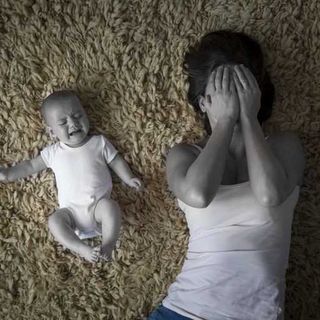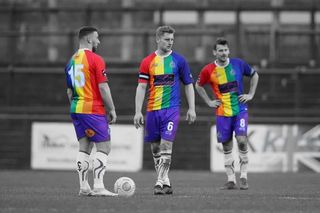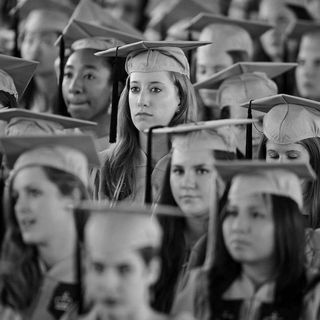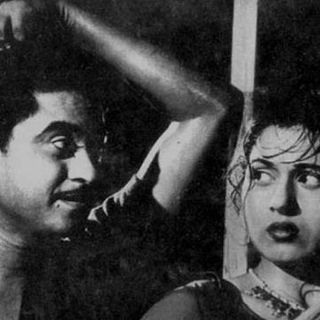
New Report Outlines Scale of Homophobia, Transphobia in Sport
82% of survey respondents report having witnessed homophobic or transphobic language either as a sports spectator or participant within the last year.

Last week, police in the U.K. launched an investigation into alleged homophobic chanting by West Ham fans at an English Premier League match against Chelsea. It is one more example of a long history of homophobia in sport, one that trickles down from the pro to the leisure levels, where 82% of LGBTQ+ people report having witnessed homophobic or transphobic language either as a sports spectator or participant within the last year, according to a new report.
The report drew on the survey responses of roughly 5,500 LGBTQ+ Europeans, aged 16 and older, who have played or still play sports in their leisure time, through work, or through their educational institution. It found 90% of respondents considered homophobia and transphobia to be a current problem. 16% had personally experienced at least one bigoted attack in the context of their chosen sport, most commonly verbal insults and structural discrimination, though some reported physical violations as well. And the perpetrators come from the breadth of the sports spectrum: Lesbian women and bisexual people named their own team members as the most common offenders, while gay men and people with other sexual orientations said other sports participants were the problem. Transgender people were more likely than cisgender people to report harassment from a coach.
Perhaps, as a result, about one in three respondents said they are completely closeted in the context of whatever sport they engage in. One in five respondents reported not pursuing a sport they’re interested in due to considerations around their sexual orientation or gender identity. And one in 20 respondents who reported being previously, but not currently, active in sports said they had quit due to discrimination for their sexual orientation or gender identity.
Most chose to ignore any attacks they faced. Only 8% chose to report the incidents of homo- or transphobia; nearly 40% did not know of a resource that could offer support to LGBTQIA+ people in the event of hate speech or discrimination encountered during sporting activities.
Related on The Swaddle:
Ada Hegerberg Deserves to Be Honored for Her Success in Football Without Being Undermined by Sexism
While the West Ham club has condemned the homophobic language allegedly used by fans, it’s undeniable that sport remains one of the last bastions of traditional, cisgender, heterosexual, macho masculinity — to the point that in the few instances that a male professional athlete has come out as gay, it’s been global news. In India, for instance, no professional male athlete has come out with a gender identity or sexuality other than cisgender and heterosexual. Perhaps for good reason: the one professional woman athlete, Dutee Chand, who is publicly both intersex and lesbian has faced backlash and competition bans.
Of course, professional athletes don’t owe the world a statement on their gender identity or sexuality. But those who make them become powerful symbols for the majority of people surveyed in this report, and others like them: 70% of respondents said famous sports stars who publicly come out, combined with institutional campaigns to combat homophobia and transphobia, ease discrimination and prejudice within sport at the lower levels.
But as much as we look for inspiration from sportspeople, as much as we look to captains to lead us, change has to come from within and from the ground-up, too — from the fans, from the neighborhood pick-up matches, and from the school teammate. As U.S. football star and LGBTQIA+ icon Megan Rapinoe, an outspoken critic of homophobia, sexism and racism in sport, has said, “If we really want to have meaningful change, what I think is most inspiring would be if everybody other than [Raheem] Sterling and [Kalidou] Koulibaly, if they were as outraged about racism as they were, if everybody was as outraged about homophobia as the LGBTQ players, if everybody was as outraged about the lack of equal pay and investment in the women’s game other than just women, that would be the most inspiring thing to me,” Rapinoe said, speaking to her peers during her September speech as Fifa’s best player of the year. “That’s my ask of everybody. We have such an incredible opportunity, being professional football players ….”
We have such incredible opportunity being fans, too.
Liesl Goecker is The Swaddle's managing editor.
Related


Women College Students Feel Highest‑Paying Fields Aren’t Realistic for Them to Pursue: Study
